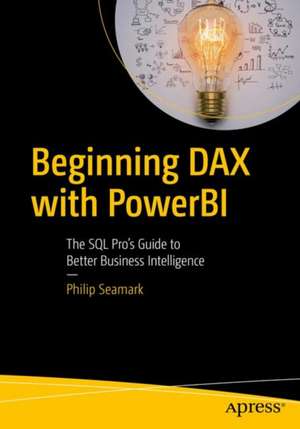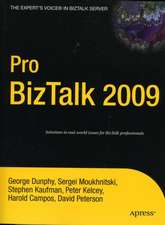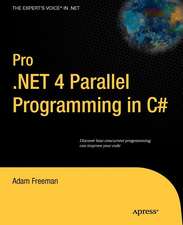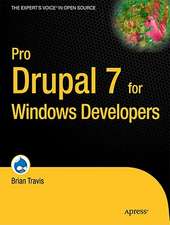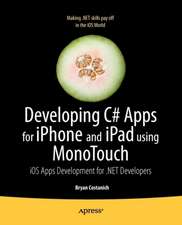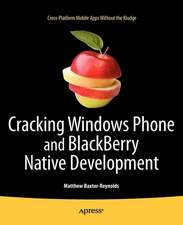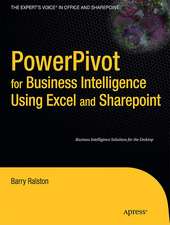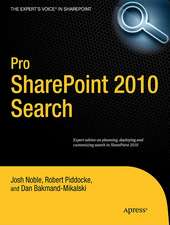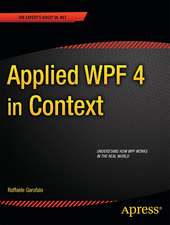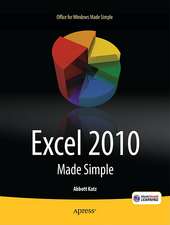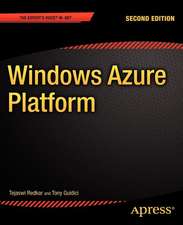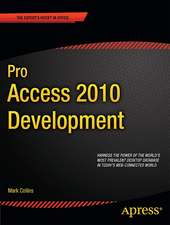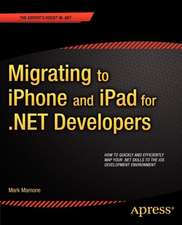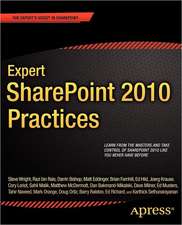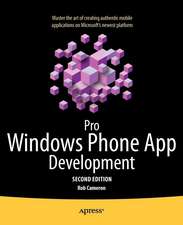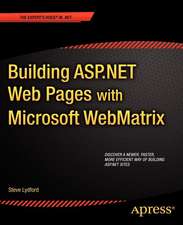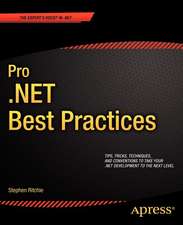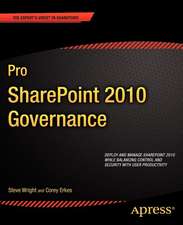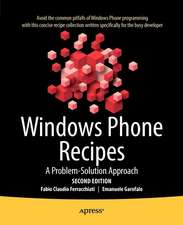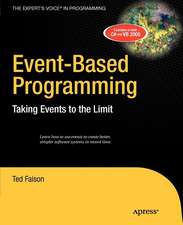Beginning DAX with Power BI: The SQL Pro’s Guide to Better Business Intelligence
Autor Philip Seamarken Limba Engleză Paperback – 31 mar 2018
What You’ll Learn
- Turbocharge your Power BI model by adding advanced DAX programming techniques
- Know when to use calculated measures versus calculated columns
- Generate new tables on the fly from existing data
- Optimize, monitor, and tune Power BI to improve performance of your models
- Discover new ideas, tricks, and time-saving techniques for better models
Business intelligence developers, business analysts, or any SQL user who wants to use Power BI as a reporting tool. A solid understanding of SQL is recommended, as examples throughout the book include the DAX equivalents to SQL problem/solution scenarios.
Preț: 304.07 lei
Preț vechi: 380.09 lei
-20% Nou
Puncte Express: 456
Preț estimativ în valută:
58.19€ • 61.03$ • 48.44£
58.19€ • 61.03$ • 48.44£
Carte disponibilă
Livrare economică 11-25 martie
Preluare comenzi: 021 569.72.76
Specificații
ISBN-13: 9781484234761
ISBN-10: 1484234766
Pagini: 250
Ilustrații: XVII, 264 p. 84 illus.
Dimensiuni: 178 x 254 x 25 mm
Greutate: 0.49 kg
Ediția:1st ed.
Editura: Apress
Colecția Apress
Locul publicării:Berkeley, CA, United States
ISBN-10: 1484234766
Pagini: 250
Ilustrații: XVII, 264 p. 84 illus.
Dimensiuni: 178 x 254 x 25 mm
Greutate: 0.49 kg
Ediția:1st ed.
Editura: Apress
Colecția Apress
Locul publicării:Berkeley, CA, United States
Cuprins
Chapter 1: Introduction to DAX.- Chapter 2: Variables.- Chapter 3: Context.- Chapter 4: Summarizing and Aggregating.- Chapter 5: Joins.- Chapter 6: Filtering.- Chapter 7: Dates.- Chapter 8: Debugging and Optimizing.- Chapter 9: Practical DAX.
Notă biografică
Philip Seamark is an experienced Data Warehouse and BI Consultant with a deep understanding of the Microsoft stack and extensive knowledge of data warehouse (DW) methodologies and enterprise data modeling. He is recognized for his analytical, conceptual, and problem-solving abilities with more than 25 years of commercial experience delivering business applications across a broad range of technologies. His expertise runs the gamut from project management, dimensional modeling, performance tuning, ETL design, development and optimization, report and dashboard design to installation and administration.
In 2017 he received a Microsoft Data Platform MVP award due to his contributions to the PowerBI community site, as well as speaking at many data, analytic, and reporting events around the world. Philip is also the founder and organizer of the Wellington Power BI User Group.
In 2017 he received a Microsoft Data Platform MVP award due to his contributions to the PowerBI community site, as well as speaking at many data, analytic, and reporting events around the world. Philip is also the founder and organizer of the Wellington Power BI User Group.
Textul de pe ultima copertă
Attention all SQL Pros, DAX is not just for writing Excel-based formulas! Get hands-on learning and expert advice on how to use the vast capabilities of the DAX language to solve common data modeling challenges.Beginning DAX with Power BI teaches key concepts such as mapping techniques from SQL to DAX, filtering, grouping, joining, pivoting, and using temporary tables, all aimed at the SQL professional. Join author Philip Seamark as he guides you on a journey through typical business data transformation scenarios and challenges, and teaches you, step-by-step, how to resolve challenges using DAX. Tips, tricks, and shortcuts are included and explained, along with examples of the SQL equivalent, in order to accelerate learning. Examples in the book range from beginner to advanced, with plenty of detailed explanation when walking through each scenario.
What You’ll Learn:
What You’ll Learn:
- Turbocharge your Power BI model by adding advanced DAX programming techniques
- Know when to use calculated measures versus calculated columns
- Generate new tables on the fly from existing data
- Optimize, monitor, and tune Power BI to improve performance of your models
- Discover new ideas, tricks, and time-saving techniques for better models
This book is for business intelligence developers, business analysts, or any SQL user who wants to use Power BI as a reporting tool. A solid understanding of SQL is recommended, as examples throughout the book include the DAX equivalents to SQL problem/solution scenarios.
Philip Seamark,a Senior BI architect with Trade Me and a Microsoft Data Platform MVP with more than 25 years of commercial experience delivering business applications across multiple technologies. He is an experienced database and BI professional with a deep understanding of the Microsoft stack and extensive knowledge of data warehouse (DW)methodologies and enterprise data modeling. Philip writes for the Power BI community site, and is a speaker at many industry events, Microsoft Ignite, Data Insights, Power BI User Groups, SQL Saturdays, and more.
Caracteristici
Teaches the differences between the types of calculations available in DAX and how and when to use each Presents the key aspects of DAX such as variables, filter context, joining tables, aggregating data, and optimization Provides BI content for SQL pros while most DAX books target Excel users Shows you how to leverage the power of DAX by using advanced techniques to produce outcomes you otherwise thought wouldn’t be possible The author is a Power BI MVP with years of expertise troubleshooting big data projects
